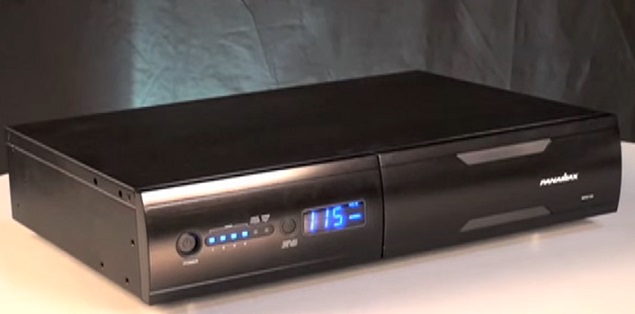Home Theatre Power Manager (Do I REALLY Need One?) So, you recently built a home theatre with expensive equipment, and you’re wondering if you need a home theatre power manager to keep your electronics safe.
Is it necessary? Will it make a difference in audio quality? The price for power conditioners can range from a couple of hundred dollars to a few thousand and even more. Is it worth the investment?
There is a lot of contradictory information out there about home power managers. Some people say they’re a must-have for any home theatre or audiophile, while others say they’re a waste of money and a scam. Who should you believe?
What is a Home Theatre Power Manager?
A home theatre power manager is a device that offers a variety of electrical protection features.
Most home theatre power managers provide surge protection, noise filtration, and even automatic voltage regulators. In some cases, a power manager can improve the audio quality.
On the surface, these devices look like a set-top box or a Blu-ray player, they’re designed to be mounted on a rack and have multiple outlets on the rear panel.
The outlets are usually isolated from one another and labeled for a specific use, such as high-voltage devices, power amps, and others. if you want to get more updates related to home improvement then visit faujtech.com
The front panel of the power manager usually has a small screen to show the current-voltage and a few other features depending on the model. Most models include a power switch too, which will cut off power to all the outlets.
On the other hand, high-end power conditioners are large and bulky, often weighing 50 lbs or more, making them pretty inconvenient for many home theatres. Not to mention they’re also very expensive, costing upwards of $5,000.
There are even some power conditioners that cost $9,000 or more! Some of these power conditioners can cost more than all your home theatre equipment combined.
What Does a Power Manager Do?
The purpose of a power manager is to not only keep your electronics safe but to also make sure only clean energy is entering the devices.
Power conditioners are usually used in audio-related setups because audio is more sensitive to noise and interference.
If you have a home recording studio or an amplifier, a power manager could offer improvements.
What is Noise in Electricity?
One of the main causes of noise in electricity is actually from other electronics connected to the same circuit in your home.
Most modern electronics convert AC from the mains to DC using switching power supplies that quickly convert AC electricity but also send noise back into the circuit.
The noise can also be introduced by your neighbors, weather, radio waves, EMFs, and many other factors.
What is Dirty Electricity?
Dirty electricity is another term used for electricity that is unreliable or has a lot of noise. There are a lot of factors to consider, such as micro-surges, signal interference, damage to the power grid, line noise, and many others.
Dirty energy can also create electromagnetic fields (EMFs) that can interfere with electronics.
The term dirty electricity was invented by Samuel Milham MD, who wrote a book about it called Dirty Electricity: Electrification and the Diseases of Civilization.
The book attempts to discover the link between electromagnetic fields and a variety of diseases. Nowadays the term is also used to describe electricity that has a lot of noise in it.
However, there are no definitive studies that prove low-level electromagnetic fields can damage your health. There is evidence that large levels of EMFs can cause some damage, but it is very unlikely that you will be exposed to such levels.
Nevertheless, whether it’s for your peace of mind or your electronics, it’s worth learning about how to clean the electricity in your home.
read more: Best LED TV Models with New Cognitive XR Processor

